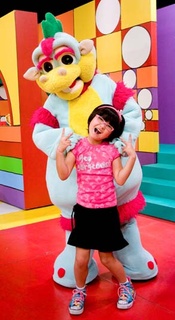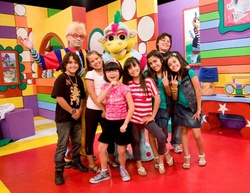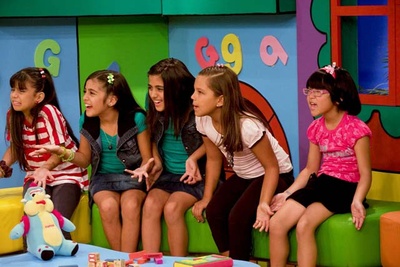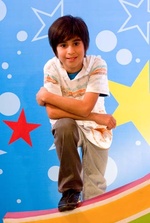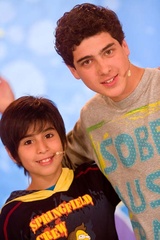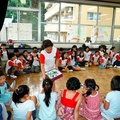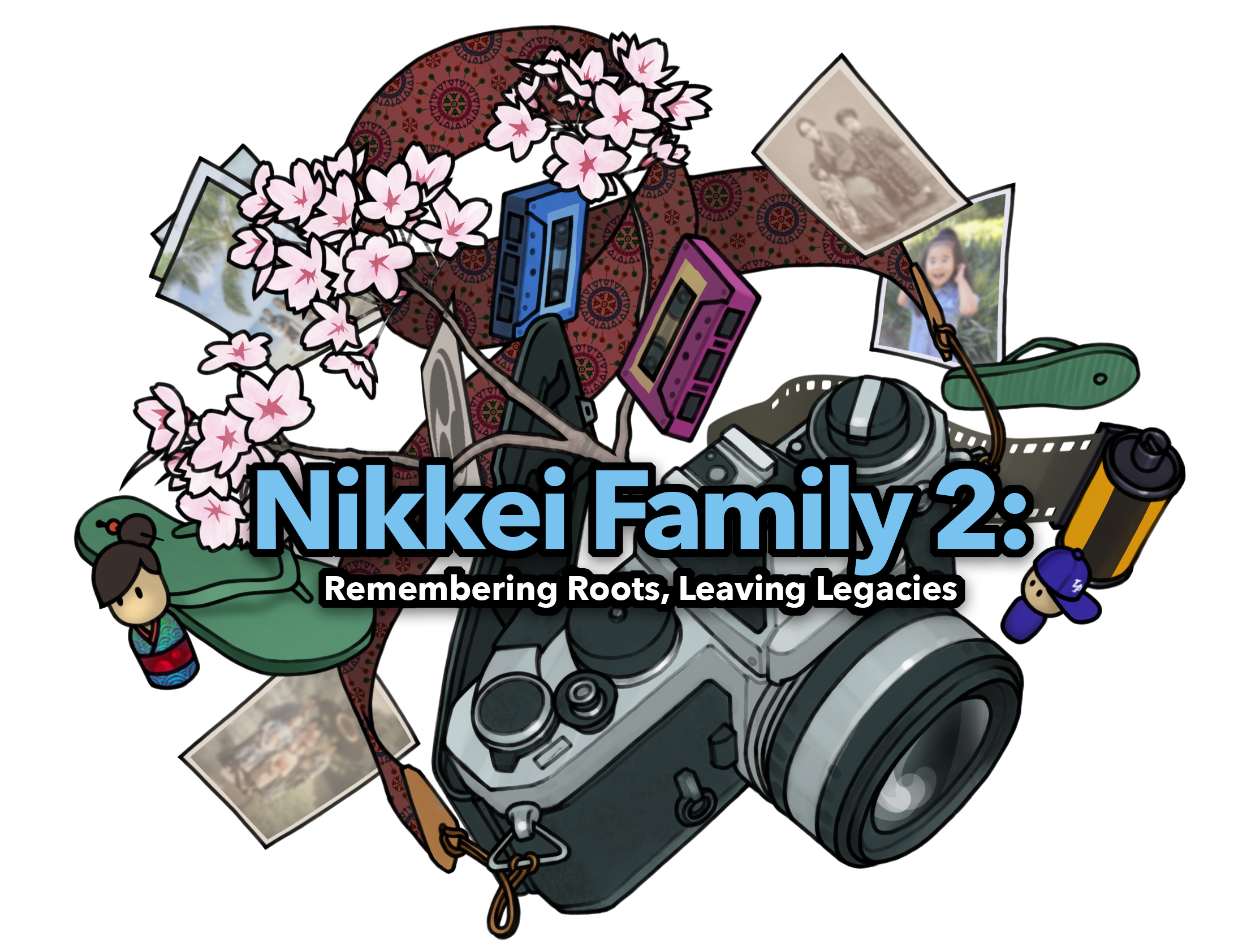Suemi Higa and Ricky Ota have in common, in addition to their inexhaustible energy and a spontaneity that moves, being “TV kids” who have been making their way onto Peruvian screens through tuned children's programs.
I'm Suemi!
She is small and thin, with short black hair, gracefully wears pink glasses, responds to the name Suemi and is, for greater definition: a fairy. Well, he doesn't run, he flies from one place to another, wasting, instead of magic dust, pure energy to the sound of the flashing lights of his sneakers.
Lights that at first attract attention but are quickly overshadowed by the charm of Suemi Higa, who at seven years old is the youngest member of the cast of La casa de Timoteo (América Televisión) where she plays the daughter of the classic winemaker of the neighborhood, the Japanese Ku Tu Wao.
What is the best thing about being part of the program for Suemi? Play! Of course. With her classmates, with her dance teacher, with the cameramen. With everyone.
Her castmates, like Mariano, define her as “fun and re-energized, always attentive to what they tell her, even though she is the smallest.”
Suemi is also the youngest at home. Her sisters, thirteen-year-old Nicole and nine-year-old Eimi, encourage her with “hey chibola! You are well in Timothy.” To which she responds: “Do you think I like being called chibola? "I'm Suemi!"
At school it is not new for her to hear phrases like “you are on TV, in Timoteo!”, “how cool, how exciting!” And although she doesn't mind being recognized, she confesses that she feels a little embarrassed, like the one she feels when watching her shows at home, "because mommy records all the shows," she reveals, while her mother smiles.
Suemi admires her mother, Kiku Kobashigawa, and that's why when she grows up she will be: “a singer like my mom.” His favourite song? Tokyo Kid, by Misora Hibari, with which he performed at the Peruvian Japanese Theater, arousing great tenderness among the public.
With her entry into the program, Suemi's life changed, rehearsals in the afternoons after school, entire days of recording on set and off of it. But she changed her mother's routine even more, who accompanies her at all times and without regret. “What I want is for her to have fun,” he says, “just as you see her now. The important thing is that later you can say that you didn't miss the opportunities, because we gave them to you. The opportunity arose and you participated.”
Kiku highlights that both Suemi and her sisters know that studies are a priority. “For her, all this is part of her training, it is like studying piano or Japanese, it is part of what she will carry with her when she is twenty years old. If she later dedicates herself to this, she will decide, now that she takes advantage of it as part of her experiences.”
Whether Suemi becomes a television star or a nuclear physicist – as her mother jokes – we will see in time. Today, at seven years old, the small, thin girl, with short black hair, glasses and bright sneakers, is a restless and charming fairy who has fun in a constant coming and going and leaves a trail of inevitable smiles in her wake. .
Ricky's dreams
Ricky Ota is twelve years old and has hosted, with Emilio Noguerol, since 2007, La Hora Warner (Frecuencia Latina), a program broadcast by Frecuencia Latina. After almost four years of experience, what has changed in him, since that first day of recording, is that “now I have too much confidence – Ricky confesses while laughing – before I was a little disconnected because I had just arrived, then you adapt.”
And he adapted very well. His willingness to experiment and the fact that there is almost nothing he doesn't like make him the chosen one when it comes to recording outside the set.
Today, there is little left to finish the recordings, and after reviewing his lines and dialogues, Ricky takes his position in front of the camera while you hear: “three, two, one.” The shot opens and the charming smile he wears now is not exclusive to the camera, when it turns off Ricky retains that pleasant smile while he looks you in the eyes and speaks with the confidence of someone who is honest in what he says. “I like to be treated like a normal person,” he clarifies, “like everyone else, not like someone who appears on television.”
Without a doubt, he likes being recognized and having fans who greet him when he sees him, “I never get overdone,” he says. But with friends he prefers honesty: “when they tell me what they don't like about me, that's good because I always have to stay with my feet on the ground.”
Keeping your feet on the ground doesn't stop you from dreaming. Your biggest dream? To be a great actor and play, like Will Smith, his idol, different roles. “You can give him a sad, playful or nerdy role, and he does it! I love it because it has versatility,” he says with the excitement of a fan.
He knows that realizing this dream will require a lot of preparation and he is willing to put in the effort. As he does now when evaluation days arrive at his school, the tension during the recordings is explained with: “I'm in exams.”
Everyone understands, because he does not shy away from his responsibilities. “I like to study,” he says. And what will you study besides acting? Graphic design and digital animation, “I want to make my own animated films, I would like to create things for people to have fun.”
Ricky is full of dreams and every step taken so far brings him closer to them. He has successfully participated in various theatrical productions, in the miniseries El profe and La gran sangre, las diosdes curses and in the film Tarata . If in the future we see him starring in the films he dreams of, it will undoubtedly be thanks to his overflowing energy, his contagious enthusiasm, his talent, and above all the great effort he puts into everything he does.
* This article is published thanks to the agreement between the Peruvian Japanese Association (APJ) and the Discover Nikkei Project. Article originally published in Kaikan magazine No. 56, May 2011 and adapted for Discover Nikkei.
© 2011 Asociación Peruano Japonesa / © 2011 Fotos: Asociación Peruano Japonesa (Beatriz Torres)



